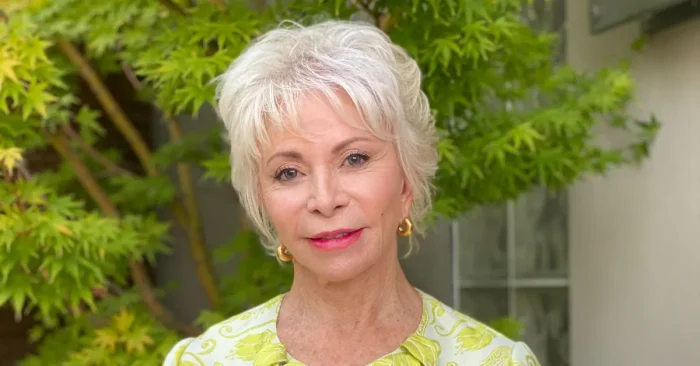Isabel Allende – Biography
Early Life and Education of Isabel Allende
Isabel Allende was born on August 2, 1942, in Lima, Peru. Her father was a Chilean diplomat, but when he abandoned the family, her mother moved Isabel and her siblings back to Chile. Raised in Santiago, Allende grew up surrounded by books, which sparked her passion for storytelling. Her early exposure to literature and strong women in her family deeply influenced her later work. She attended private schools in Chile but did not pursue formal literary studies in college. Instead, her love for reading and writing developed naturally, preparing her for a future as one of the world’s most acclaimed authors.
Career Beginnings in Journalism
Allende’s professional journey began in the 1960s when she worked as a journalist. She wrote for magazines and newspapers in Chile, producing articles, editorials, and humorous columns. Her sharp wit and clear writing style quickly gained attention. She also hosted popular children’s television programs and cultural talk shows. These early years helped her sharpen her storytelling skills and develop a keen eye for social and political issues, which would later become central themes in her fiction. The political atmosphere in Chile grew increasingly unstable, setting the stage for life-changing events that would deeply influence her writing career.
Exile and The House of the Spirits
The 1973 military coup that overthrew Chilean President Salvador Allende, Isabel’s cousin, forced her into exile. She fled to Venezuela in 1975, where she spent over a decade. During this time, she started writing her first novel, “The House of the Spirits,” originally intended as a letter to her dying grandfather. The novel became a sweeping family saga, blending Chilean history with elements of magical realism. Published in 1982, it was an international success, earning widespread critical acclaim and launching her career as a novelist. “The House of the Spirits” introduced her signature style: richly drawn characters, emotional depth, and intricate historical detail.
Establishing Herself as a Global Author
Following her debut, Allende published a series of successful novels that cemented her reputation. Books like “Of Love and Shadows,” “Eva Luna,” and “Daughter of Fortune” explored themes of love, loss, political turmoil, and female empowerment. Her ability to blend magical realism with historical events resonated with readers worldwide. Allende’s works often featured strong women navigating personal and political challenges, reflecting her feminist perspective. Her unique narrative voice and richly textured storytelling made her one of the most widely read Spanish-language authors, with millions of copies sold in dozens of languages.
Personal Tragedy and Memoir Writing
In 1992, tragedy struck when her daughter Paula died at age 28 from a rare illness. This profound loss led Allende to write “Paula,” a deeply personal memoir published in 1994. The book offered an intimate look at her grief, her family’s history, and her spiritual reflections. “Paula” resonated with readers for its raw honesty and emotional vulnerability. The memoir marked a turning point in her writing, as she began incorporating more autobiographical elements into her novels. This ability to channel personal pain into powerful narratives further strengthened her bond with readers around the world.
Later Works and Continued Impact
Allende continued to produce acclaimed novels such as “Portrait in Sepia,” “Island Beneath the Sea,” and “The Japanese Lover.” These works explored identity, displacement, love, and historical change. Her stories often focused on characters facing personal and political upheaval, reflecting her own experiences of exile and loss. In 2015, President Barack Obama awarded her the Presidential Medal of Freedom, recognizing her literary achievements and humanitarian work. Beyond her writing, Allende founded the Isabel Allende Foundation, supporting programs for women and children’s rights worldwide, reflecting her lifelong commitment to social justice.
Personal Life and Ongoing Legacy
Allende has been married multiple times and currently lives in California. Despite personal hardships, she remains active in writing, public speaking, and advocacy. Her resilience and passion for storytelling continue to inspire new generations of readers. With more than 70 million books sold globally, Allende has established herself as one of the most important voices in contemporary literature. Her work bridges personal stories with larger social and political issues, offering readers a deep understanding of both individual lives and historical events. Through her novels, memoirs, and activism, Isabel Allende has built a legacy that transcends borders and speaks to universal human experiences.
Conclusion
Isabel Allende’s journey from exile to literary stardom is a testament to her remarkable storytelling talent and resilience. Her novels capture the complexities of love, family, politics, and identity, earning her a devoted global readership. Through her writing and humanitarian efforts, she continues to amplify voices often overlooked, leaving a lasting impact on literature and society. Allende’s legacy is not only defined by her bestselling novels but also by her unwavering dedication to justice, compassion, and the transformative power of stories.
Frequently Asked Questions (FAQs)
What is Isabel Allende best known for?
She is best known for her novel “The House of the Spirits,” which blends Chilean history with magical realism and family saga.
Has Isabel Allende received major awards?
Yes, she received the Presidential Medal of Freedom in 2015 and numerous literary honors throughout her career.
Where does Isabel Allende live?
She currently lives in California, United States.
What themes does she explore in her work?
Her work often focuses on family, exile, politics, feminism, love, and personal loss.
Is Isabel Allende involved in philanthropy?
Yes, she runs the Isabel Allende Foundation, which supports women’s and children’s rights worldwide.

















